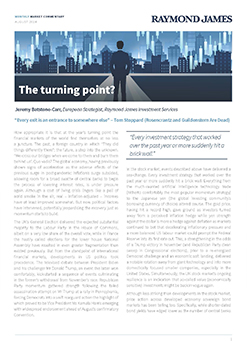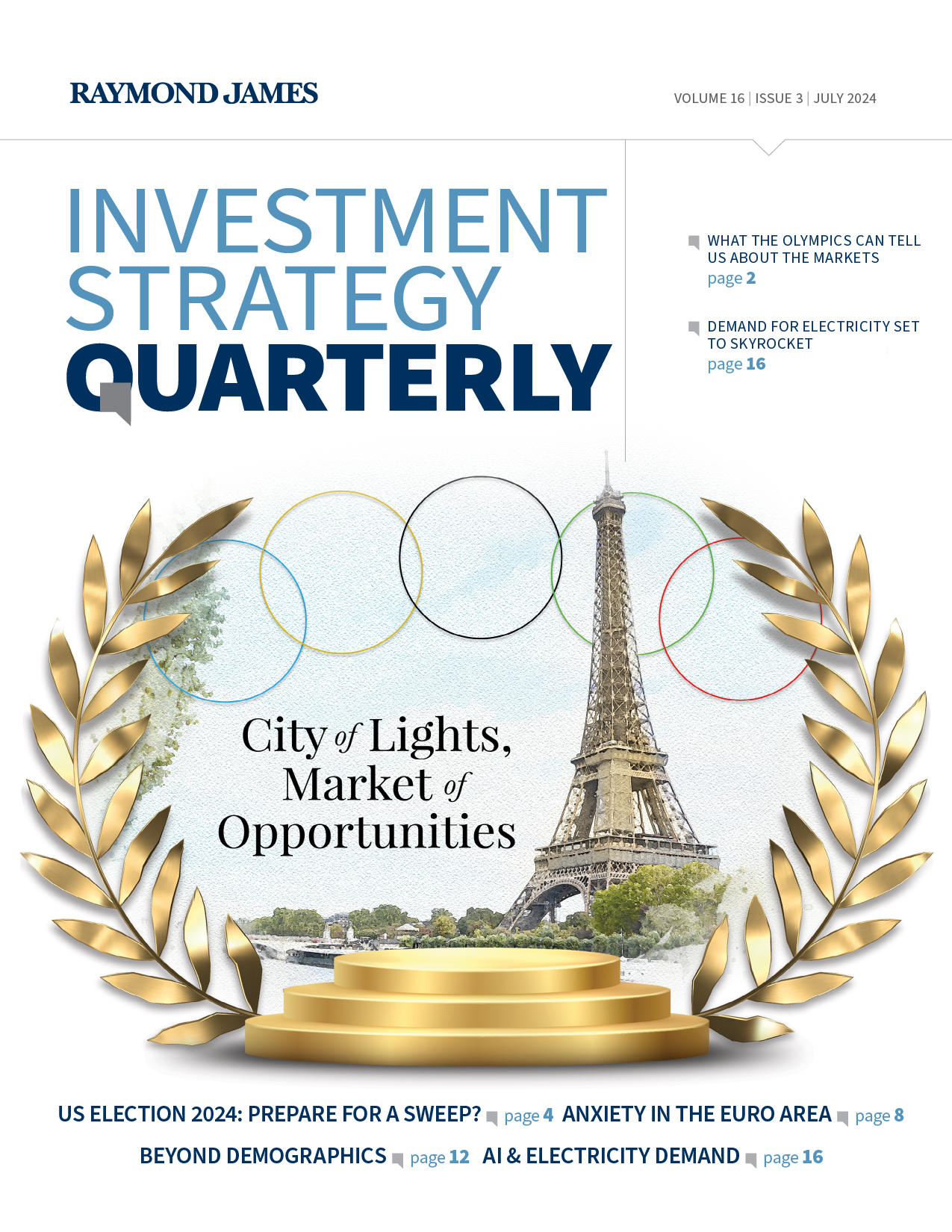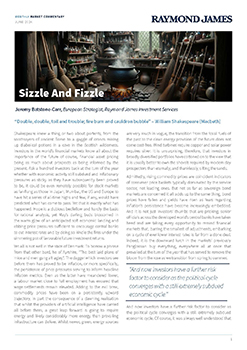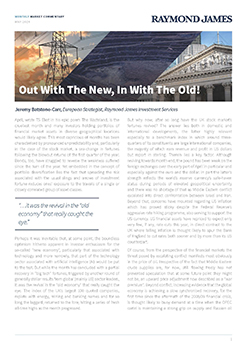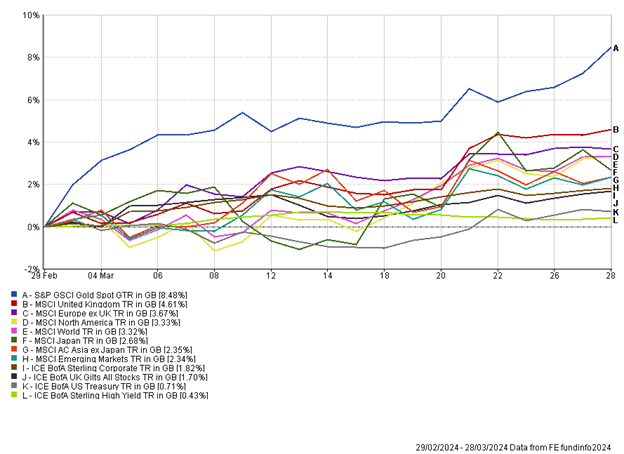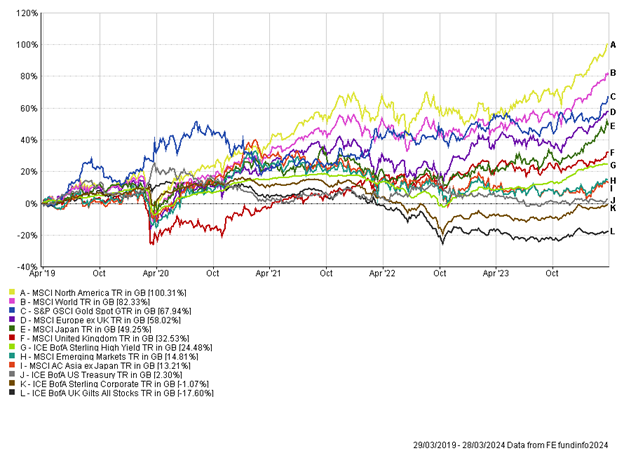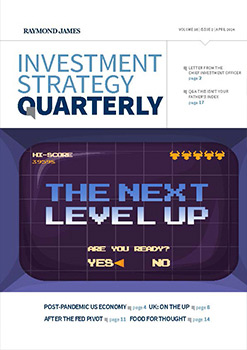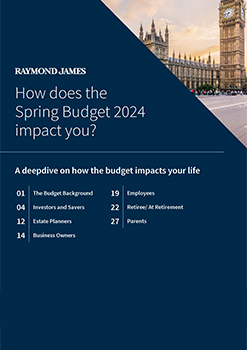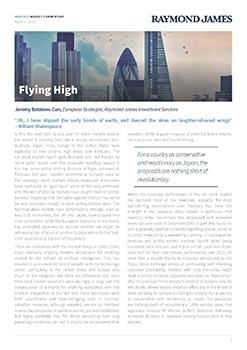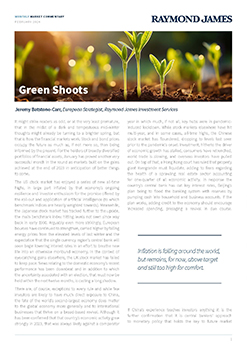Any hopes of a quiet summer in markets were quickly abandoned as investors woke up on Monday morning to turmoil in the Japanese market, which soon spread globally. Monday’s fall of over 12% in the Japanese index meant it was the third worst day on record for Japanese equities, and when combined with the falls on the previous Friday, meant it was the worst two-day trading period ever for the Japanese main index.
It appears that the crash on Monday was not driven by fundamentals, but in fact by a huge unwind in positioning following the recent rapid appreciation of the Japanese Yen. The sharp decline in equities has occurred as the Japanese Yen has appreciated by over 10% versus most major currencies. This huge reversal has led to many quantitative strategies, hedge funds and algorithm traders having to cover their positioning, leading to the heightened volatility and drawdowns. Concerns that the Yen would further appreciate, and lead to continued drawdowns were soon abated by the Bank of Japan, who after an emergency meeting, stated “we will not raise rates when markets are unstable”. The news was enough to lead to a huge rebound on Tuesday – the Japanese index rising over 10% and finishing the week a little more than 2% down – quite the recovery!
The US market started the week on the back foot, with the events in Japan spreading globally, coupled with increasing concerns the US economy may be heading towards recession, following weaker jobs data last Friday. These recessionary fears were eased on Thursday when the initial jobless claims data was better than expected. US equities had their best day since November 2022 on Thursday and are now up for the week in sterling terms.
The general trend across global equities was for weakness at the start of the week, before posting a recovery towards the end of the week. The reverse is true for government bonds. Concerns around US growth and the flash crash in Japan led to a rally in developed market government bonds. 10-year US and UK government bond yields fell below 4% (prices rising) as more interest rate cuts begun to be priced in. At one point on Monday the market was expecting the US to reduce interest rates by 1.25% before the end of the year. Yields have drifted higher, although the market is still expecting either a 0.25% or 0.5% interest rate cut from the US in September. Falling interest rates without a recession could be a powerful cocktail for equity markets.
Chinese inflation data came in higher than expected, at 0.5% year-on-year. The country has been battling deflation, so it was pleasing to see a positive inflation print. The world’s second largest economy is still challenged by a sluggish housing market and slowing growth. The Chinese authorities are attempting to stimulate the economy, however, it’s yet to be seen whether the measures implemented so far will be successful.
The week has been very light on key economic data, yet we have witnessed big swings in both equity and bond markets. Trading volumes are often thin in the summer months, with many market participants on holiday, and this amplified volatility this week. It was pleasing to see government bonds help offset some of the equity weakness on Monday. It’s a reminder that the asset class can diversify equity risk in times of growth concerns. The turnaround in Japanese equities from Monday to Tuesday was also a reminder about keeping calm when others are panicking. Those nervous sellers on Monday missed out on a 10% gain the following day. For us, the focus remains on diversification, holding a range of assets that can perform in a range of outcomes, while leaning into areas where we have high conviction.
Andy Triggs, Head of Investments
Risk warning: With investing, your capital is at risk. The value of investments and the income from them can go down as well as up and you may not recover the amount of your initial investment. Certain investments carry a higher degree of risk than others and are, therefore, unsuitable for some investors.


